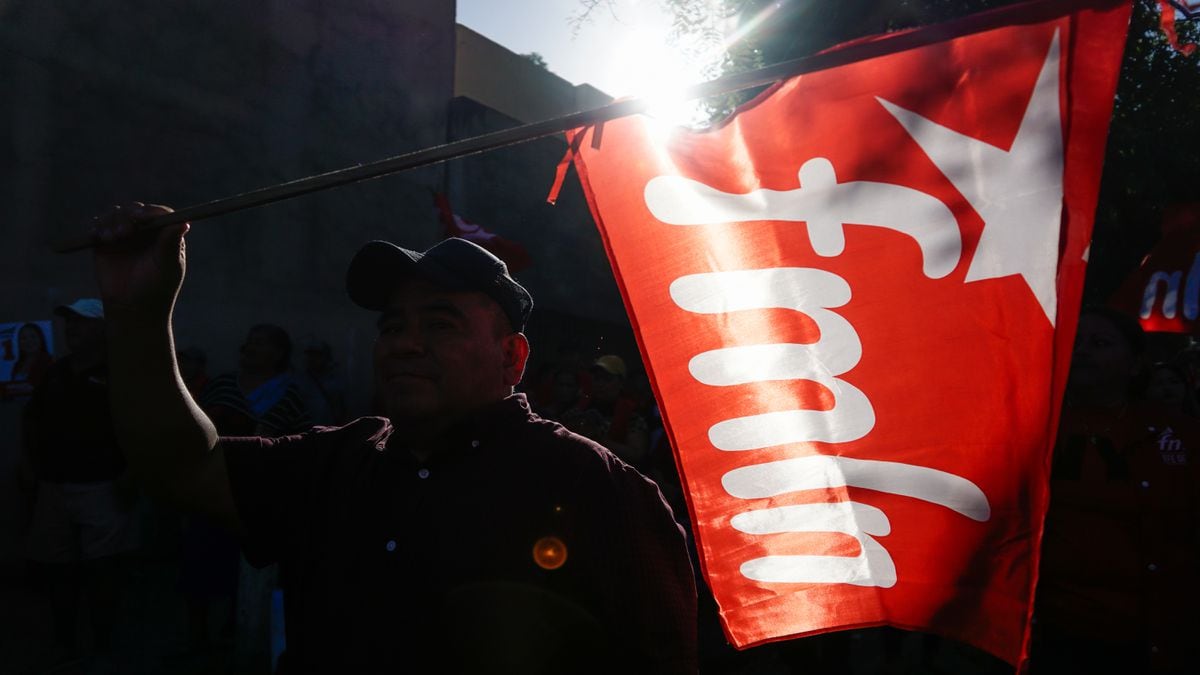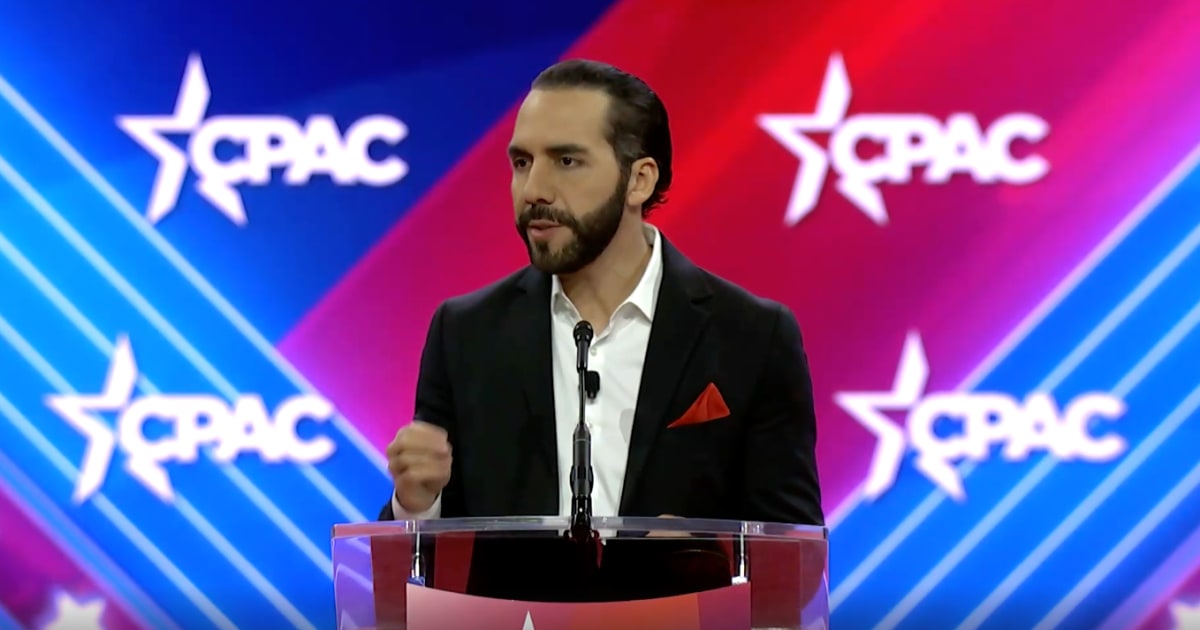A few weeks ago I witnessed a conversation in which a person from El Salvador commented that, being outside his country, he had been able to sing a song in karaoke that he no longer dares to sing in his hometown.
When I asked what it was, I got a huge surprise:
My eyes cry for you
.
An iconic theme for a generation (mine) throughout Latin America, one of those that are sung with a wounded cry, turn nights on and close parties.
Apparently, singing songs by artists like Big Boy, wearing shoe models like the Nike Cortez or Adidas Superstar, or having religious tattoos in El Salvador can lead to being mistaken for a gang member, or assumed to be related to these groups.
Some gangs appropriated these common products and turned them into brands of membership.
As part of their strategies of territorial control, fear and violence, they were the only ones who, for example, could wear certain clothes.
What's more, aesthetics became a way of recognizing their enemies.
This form of control by the gangs left many people with a deep-seated fear that limited their freedom to choose matters as daily as the music they listen to.
And although now the Government of Nayib Bukele shows the world that several of these groups are dismantled and the vast majority of their members are in jail, many people continue to fear the repercussions that may occur, but now not at the hands of certain gangs, but of the State itself.
This is therefore a story of resignation, of the price that people are willing to pay to feel safe.
And as more and more voices in Colombia mention El Salvador's security model as successful, almost miraculous, and suggest that we apply it in the country, it is worth asking ourselves before going any further: how much is our peace of mind worth?
What rights and freedoms are we willing to give up to feel safe in our neighborhood?
How to know when "we lost our hand" giving in to rights and freedoms?
Will there be going back?
A song or a pair of sneakers may seem banal... or they may be the most tangible and daily example of something much greater.
Let's go back to El Salvador and go through some examples of this tension between security, freedoms, rights and power, and how citizen resignations are being activated.
The first is the exception regime.
A well-known figure in our region who suspends certain constitutional rights and guarantees and grants exceptional powers to civil or military authorities to deal with serious or extraordinary situations.
In the case of El Salvador, the declared objective is to reinforce the security of Salvadorans in the face of the upsurge in crimes that occurred almost a year ago.
Yes, this regime has been going on for almost a year now, so at this point there is little exception.
The figure has served to carry out, according to official figures, at least 61,000 arrests of people linked to gangs,
Another example is the arguments of the director of the National Civil Police of El Salvador in the Legislative Assembly to request the eleventh extension of the emergency regime.
He affirmed the following: "Let us remember that the policeman is a street judge who has criteria to be able to arrest, identify and individualize any person and makes them available to justice."
In parallel, and as a third example, the Bukele government launched a reform to the Criminal Code to punish the dissemination of messages alluding to gangs with between 10 and 15 years in prison.
This includes punishing anyone who creates or collaborates with the production of texts, drawings, designs, paintings or "any form of visual expression in real estate for public or private use that explicitly or implicitly alludes to criminal groups."
There will also be the same penalty for those who reproduce and transmit messages originated by criminal groups and that may cause panic or anxiety in the population.
There is a specific mention of the media, but it is worth wondering if the music or the way of dressing will enter into this broad and diffuse framework.
The complete picture is ferocious: the authorities, especially the public force, are acquiring overwhelming power and the citizenry, especially those who are innocent, are left increasingly unprotected, with fewer guarantees, fewer rights and fewer freedoms.
The result is not a stronger state or justice system but a system at the discretion of a few individuals.
Today there may be a consensus that they go after the gangs, but what happens if tomorrow they decide to focus on another population group, or on another dimension of freedom of expression or association?
Is this what we want to copy?
Grant arbitrariness to gain peace of mind?
The usual answer to these questions is that he who owes nothing fears nothing.
But how not to fear if the limits of what duty means are moving and depend on a few: how and who defines that a text or a drawing will not be considered an allusion to a criminal group?
How and who defines whether or not a message causes panic in the population?
Why would a policeman on the street have the power to decide, like a judge, if I am innocent or guilty without due process, the ultimate guarantee of justice and impartiality?
Certainly, giving in as citizens is something we do to live in a society.
But how much do I have to give in for a police officer not to consider me a criminal?
Simple.
Don't sing certain artists that you like, don't wear those tennis shoes that you like, don't tattoo certain symbols, don't use certain expressions, don't play certain messages, don't make certain designs, don't talk to certain people.
That is to say: renounce your daily life and your individuality.
Simple…
Of course, not all people experience violence and insecurity in the same way and intensity (surely in the areas with the highest purchasing power in El Salvador there should be freedom to use Nike Cortez, and it can be even
cool
), and for this reason in the intervened neighborhoods there is a lot of support for the Bukele model.
It's understandable.
I would dare to say that Latinos who grew up and live in countries with high rates of violence have in common fatigue, anger, sadness and frustration that, generation after generation, we have to live with violence, that nothing does make it disappear
That is why, seeing the success and applause that the "Bukele miracle" provokes, I wonder if feeling more secure is inevitably equivalent to giving up more and more rights and freedoms, to several innocent people dying or ending up in jail.
I wonder if we're going to be okay with that because the common good is supposedly superior, and it's only achievable in this way.
Above all because, paradoxically, with this approach fear does not abandon us either.
We only exchange the subject or the reason that provokes it.
We will always have to be careful not to sing
My eyes cry for you
in the wrong place because that can cost us our peace of mind at that moment, our freedom, or even our lives.
Subscribe here
to the EL PAÍS newsletter on Colombia and receive all the latest information on the country.
Sign up for free to continue reading
LOGINSIGN UP
Or subscribe to read without limits

/cloudfront-eu-central-1.images.arcpublishing.com/prisa/XMF6IY2MAJKVTBFKA5UXZCJ7TQ.jpg)



/cloudfront-eu-central-1.images.arcpublishing.com/prisa/4J6Y7UV2XNCIJNQ4JDORPAPYX4.jpg)


/cloudfront-eu-central-1.images.arcpublishing.com/prisa/7LCX4AG2Q3OGZDI5I3ZR2WPDW4.jpg)
/cloudfront-eu-central-1.images.arcpublishing.com/prisa/RHYRDMQQ7BG5JOUSKAXBLKE6YE.jpg)





